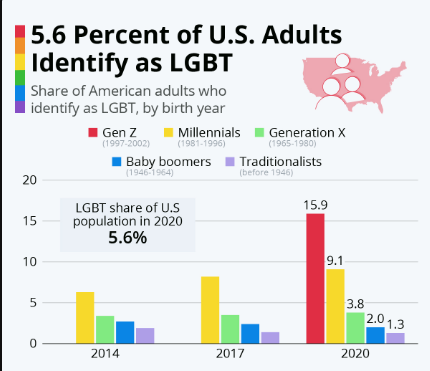Comparison of the State of LGBTQ Rights in the United States and Brunei
Brunei is a small independent Islamic sultanate found on the northern coast of the island of Borneo, surrounded by the South China Sea and Malaysia. The country is one of the absolute monarchies remaining in the universe and, to be precise, the only monarch in Asia. Being an absolute monarch, the sultan of Brunei is the head of the government and the head of the state. It implies that the sultan is the king, prime minister, minister of foreign affairs, finance, and minister of defense. The sultanate is also the official protector and guardian of tradition and Islam. About two-thirds of the country’s population is classified as Malay. However, this category comprises not only the native Malays but also some of the indigenous people like Kedayan, Bisaya, Murut, Dusun, and Belait. The Chinese make up around one-tenth of the country’s population. The remaining of the country’s population comprises other indigenous people (non-Malay) like the Sea Dayak. The population of Brunei is predominantly Sunni Muslim, although the Chinese normally follow Daoism, Buddhism, Christianity, or Confucianism. The indigenous people of Brunei are Christians, but others follow their local religions. The country’s population is growing and youthful. More than one-fifth of the country’s population is below the age of fifteen, and roughly half of the population is below thirty years of age.
Introduction
Rights that affect LGBTQ (lesbian, gay, bisexual, transgender, and questioning) vary by country or authority, from the lawful acknowledgment of same-sex marriage to death consequences for homosexuality. Remarkably, by January 2021, twenty-nine countries had approved same-sex marriage. In the US, LGBTQ rights have significantly evolved (Geidner, 10). By 1962, all the 50 states of the USA criminalized same-sex activity, but by the wake of 2003, the remaining laws on same-sex sexual affiliations had been canceled. By 2015, LGBTQ people had won the right to marry around all the American states. More so, in many municipalities and states, LGBTQ Americans are openly protected from discrimination in housing, employment, and access to public lodgings.
Legality or illegality
The country’s Supreme Court has created several LGBTQ rights in the US. In five major rulings between 1996 and 2020, the country’s Supreme Court canceled state laws banning threatened class recognition based gaysim, canceled sodomy laws, scraped from the constitution section three of the marriage and defense Act, prohibited employment discrimination against transgender and gay employees, and legalized same-sex marriage in all states (Naylor, 8). The US has enacted LGBTQ anti-discrimination laws. Washington and twenty-three states outlaw discrimination on sexual orientation, while the states, alongside twenty-two other states, outlaw discrimination on gender expression and identity. The Equality Act, which is at the proposal level in the US Congress, shall outlaw discrimination on gender identity and sexual orientation. LGBTQ people in Brunei are prone to legal challenges which are not common among residents who are non-LGBTQ. In Brunei, homosexuality is illegal and sexual relations between male people are punishable by whipping or death (Muchransyah, 419). Lesbianism is punishable by imprisonment or caning. However, currently, the sultanate has in effect a moratorium on the death penalty. To be precise, Brunei has a problematic state of rights for LBTQ individuals in South East Asia. With this, LGBTQ people in Brunei feel the urge to be discreet about their sexual orientation.

Source:https://www.nytimes.com/2018/06/21/world/lgbtq-global-rights.html
Public opinion of LGBTQ in the US has rapidly shifted since Americans started to be poled frequently. National support has increased, reaching 70% in 2021. Generational variances in opinion are the main cause of the change.
Presence or absence of same-sex marriage
The convenience of legally recognized same-gender marriage in the US expanded from a single state in the year 2004 to all states in the year 2015 through different state legislation, popular votes, and court rulings. The states have different marriage laws that adhere to the Supreme Court of the US, which identify marriage as a significant right given by the due process clause and the equal protection clause of the country’s Fourteen Amendment as established in the 1967 civil rights case. Before 2004, marriage between same-sex people was not recognized or performed in the American jurisdictions. Still, it began to be recognized and performed by law in various jurisdict